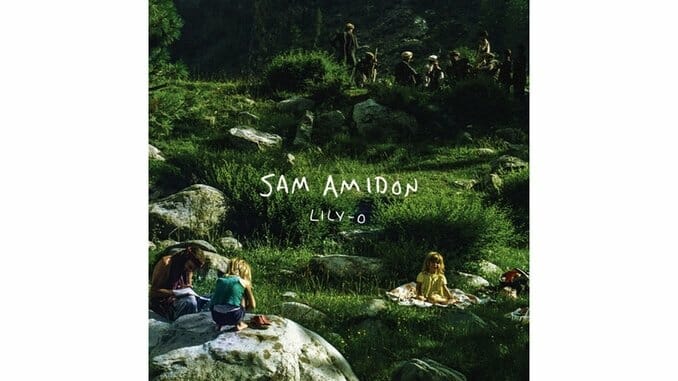Sam Amidon: Lily-O

That Zimmerman cat pretty much fucked it for all the humble troubadours. Playing with The Band and spiking his lyrics with both oblique and pointed references to his own messy affairs, Bob Dylan returned from the Highway 61 Revisited tour having completely changed the traditional character of the folk singer. No longer mere performers of song, following Dylan’s sixth album folk artists were expected to mine (or fabricate) their own out-sized persona, creating a mythology that would feed into and authenticate the blood, grit and truth of their songcraft.
Fifty years down the line, on his sixth album, Lily-O, Sam Amidon executes one of the few radical moves left in modern folk music—he negates Dylan’s iconic influence and fully absents his own identity from the act of creation. Culling lyrics from the public domain and recording with few overdubs or added takes, Amidon and a group of trusted players perform Lily-O with an immense, artistic daring—investing this collection of work songs, forgotten hymns, and found ballads with neither history nor mystique, the musicians have nothing to fall back on but the immediacy of the sounds they create.
Timing—actions and reactions—the process goes back and forth and at the same time Dylan was drinking in the life-as-art poetics of gutter libertines from Rimbaud to Henry Miller, a movement of French writers and intellectuals were seeking to define a new mode of writing that would bypass the mediating specter of the author and allow the reader access to the work as a pure, immediate presence. To that end, Roland Barthes declared “The Death of the Author” in a seminal 1967 essay, while in 1965 Alain Robbe-Grillet compiled a book of essays, For A New Novel, during which he repeatedly argued against the concept of the artist as an unhinged genius who first plunges into wild and dire experiences and then distills that suffering and transcendence into creation.
“Alcoholism, poverty, drugs, mystical passion, madness have so encumbered the more or less romanticized biographies of artists that it henceforth seems quite natural to see them as necessities of the creator’s sad condition,” wrote Robbe-Grillet.
While Amidon has never traded on enigmatic Bob-ness or the more straightforward strain of boozy, hard-luck Americana that stretches from Townes Van Zandt to Steve Earle to Phosphorescent, on past records the singer has placed “himself”—Sam Amidon—at the focal center of his songs. On last year’s Bright Sunny South, Amidon inhabited a wistful, pensive “I,” bringing his own melancholy to bear on first-person songs ranging from the homesick title track to the mournful passages of “I Wish I Wish” to his compassionate take on Tim McGraw’s “My Old Friend.”
-

-

-

-

-

-

-

-

-

-

-

-

-

-

-

-

-

-

-

-

-

-

-

-

-

-

-

-

-

-

-

-

-

-

-

-

-

-

-

-








































